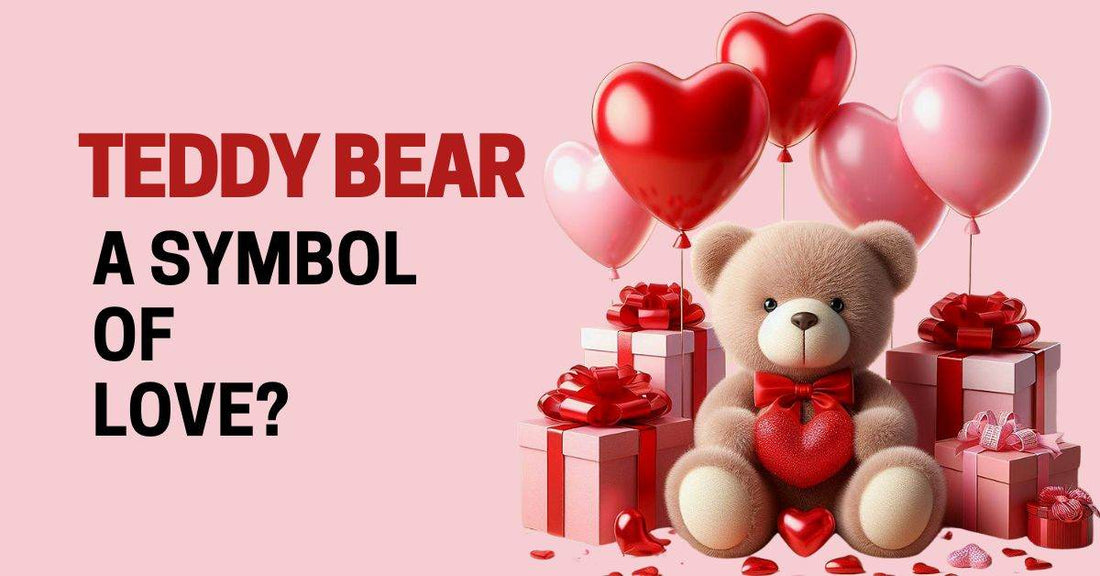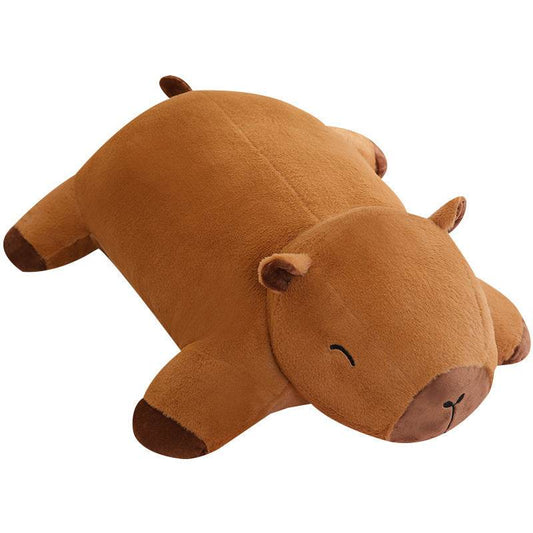Teddy bears have been a ubiquitous presence in the world of toys and gifts for over a century, captivating hearts with their soft fur and gentle demeanor. But beyond their cuddly exterior, are they more than just playthings? Are teddy bears truly symbols of love and affection? Let's delve deeper into the enduring symbolism of these beloved companions.
History of the Teddy Bear
Origin and Inspiration
The history of the teddy bear dates back to the early 20th century, with its name originating from an incident involving President Theodore Roosevelt. A compassionate gesture of sparing a bear's life during a hunting trip inspired the creation of the first teddy bear by toymakers Morris Michtom and Richard Steiff.
Rise in Popularity
Since its humble beginnings, the teddy bear has soared in popularity, becoming a staple in nurseries, bedrooms, and gift shops worldwide. Its timeless appeal transcends generations, captivating both children and adults alike.
Psychological Association with Teddy Bears
Comfort and Emotional SupportTeddy bears often serve as sources of comfort and emotional support, especially during times of distress or loneliness. Their soft, huggable nature provides solace and reassurance, akin to a warm embrace from a loved one.
Attachment and Childhood Memories
For many individuals, teddy bears hold significant sentimental value, symbolizing cherished childhood memories and companionship. These cuddly toys often become lifelong companions, offering a sense of security and nostalgia.
Teddy Bears as Gifts
Occasions for GiftingTeddy bears are popular gifts for various occasions, including birthdays, anniversaries, and holidays like Valentine's Day. Their inherent sweetness and affectionate symbolism make them ideal tokens of love and appreciation.
Symbolism of Love and Affection
When presented as gifts, teddy bears convey sentiments of love, affection, and companionship. Their adorable demeanor and cuddly presence evoke feelings of warmth and tenderness, making them perfect expressions of heartfelt emotions.
Cultural Impact of Teddy Bears
Literature and Media RepresentationTeddy bears have permeated popular culture through literature, films, and television, becoming iconic symbols of innocence and childhood wonder. From classic children's stories to modern animated series, these endearing characters continue to captivate audiences worldwide.
Collectibles and Keepsake
Beyond their role as toys, teddy bears have also gained recognition as collectibles and keepsake, with enthusiasts avidly seeking rare editions and vintage specimens. Their enduring charm and nostalgic appeal fuel a thriving market for teddy bear aficionados.
Teddy Bears as Therapeutic Tools
Role in Therapy and Stress Relief
In addition to their recreational value, teddy bears play a crucial role in therapy and stress relief, particularly in clinical settings. Their tactile properties and comforting presence can alleviate anxiety and promote emotional well-being among patients of all ages.
Comfort Objects in Healthcare Settings
In hospitals and healthcare facilities, teddy bears serve as comforting companions for children undergoing medical procedures or facing illness. These cuddly companions provide a sense of familiarity and security during challenging times, easing the distress often associated with medical treatment.
Criticisms and Controversies
Gender Stereotypes and Market TrendsDespite their widespread popularity, teddy bears have faced criticism for perpetuating gender stereotypes, with certain designs and marketing strategies reinforcing traditional notions of masculinity and femininity. Critics argue for greater diversity and inclusivity in teddy bear design and promotion.
Ethical Concerns in Production
The production of teddy bears has also raised ethical concerns regarding labor practices, environmental impact, and animal welfare. As consumers become more conscientious, there is a growing demand for sustainable and ethically sourced alternatives within the toy industry.
Conclusion:
In conclusion, teddy bears hold a special place in the hearts of millions around the world, embodying the timeless virtues of love, comfort, and companionship. Whether as childhood playmates, cherished gifts, or therapeutic aids, these cuddly companions continue to enchant and inspire, reminding us of the enduring power of affection and empathy.
Unique FAQs
1. Why are teddy bears associated with love?Teddy bears are often associated with love due to their cuddly nature and sentimental symbolism. They evoke feelings of warmth, tenderness, and affection, making them popular tokens of love and companionship.
2. Can adults enjoy teddy bears too?
Absolutely! Teddy bears hold nostalgic value for many adults, reminding them of cherished childhood memories and providing comfort during times of stress or loneliness. They can bring joy and comfort to individuals of all ages.
3. Are there different types of teddy bears?
Yes, there is a wide variety of teddy bears available, ranging from classic designs to modern interpretations. They come in various sizes, colors, and materials, catering to diverse tastes and preferences.
4. Do teddy bears have any therapeutic benefits?
Yes, teddy bears have been shown to have therapeutic benefits, particularly in providing comfort and emotional support. They can help alleviate anxiety, promote relaxation, and enhance overall well-being, especially in clinical settings.
5. What should I consider when buying a teddy bear as a gift?
When buying a teddy bear as a gift, consider the recipient's preferences, such as their favorite colors or designs. Additionally, choose a teddy bear that reflects the occasion and conveys your heartfelt sentiments effectively.
















